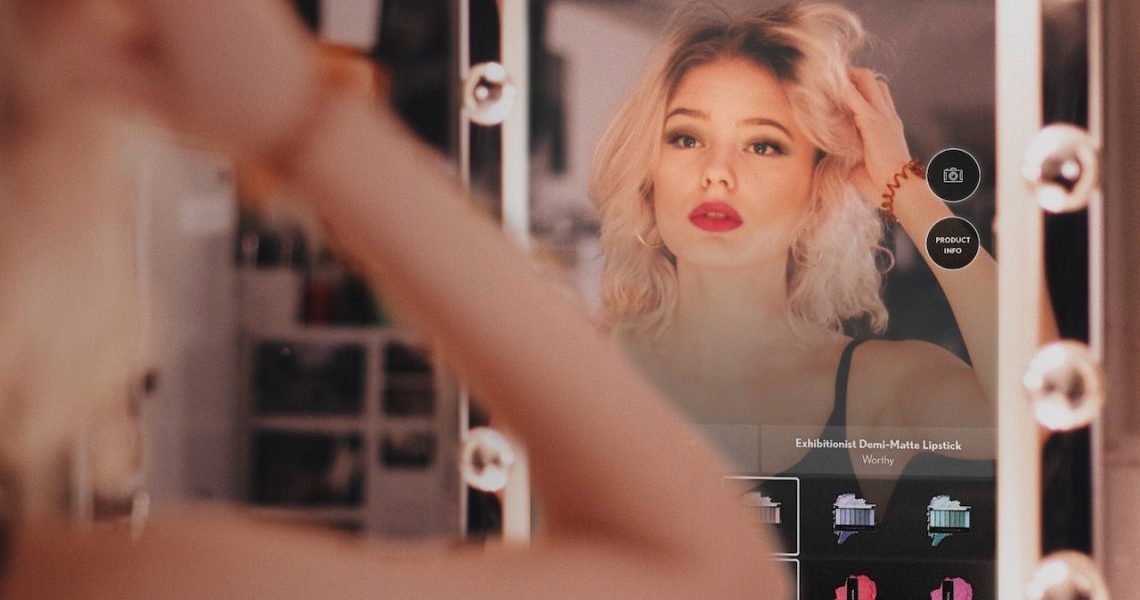The rebrand CoverGirl underwent in 2017 isn’t working.
Between October 2017 and now, CoverGirl made several publicized efforts to modernize its brand, including ditching its signature tagline, “Easy, breezy, beautiful,” for “I am what I make up,” opening a Times Square flagship store and signing on brand ambassadors like Food Network host Ayesha Curry and 71-year-old model Maye Musk. As parent company Coty Inc. continues to see a decline in its consumer beauty division, CoverGirl has now brought back its original tagline.
“We’re thankful for the transformation and what ‘I am what I make up’ brought to our brand,” Erika Woods, CoverGirl vp of marketing, said in a statement to Glossy. “CoverGirl has always stood for authenticity, diversity and self-expression. While you won’t see ‘I am what I make up’ in advertising, it will remain a part of our brand personality.”
As a result, CoverGirl is figuring out its next steps. Its ads, posted to YouTube, noticeably included the new tagline all throughout 2018, but a mascara ad featuring Katy Perry in August 2019 no longer included it. On Oct. 31, when two ads debuted (one featuring Musk), both featured voiceovers with the original tagline, “Easy, breezy, beautiful.” Additionally, in-store signage and the Times Square location have been updated with the old branding
With CoverGirl’s reversal, it demonstrates the difficult tightrope heritage brands face in adopting a modern tone of empowerment and inclusivity while balancing rigid customer expectations of incumbent brands. Investment bank Jefferies estimated CoverGirl’s retail sales fell by 5% in 2018, to $1.2 billion. In 2019, CoverGirl also experienced shelf-space loss in mass retailers like CVS, which has been bringing in more beauty services and emerging brands. This contributed to a nearly 11% decline in sales for Coty’s consumer beauty division for the 2019 fiscal year, according to fourth-quarter earnings. Coty will present its first-quarter 2020 earnings on Wednesday.
“The most important thing for a brand to do during a rebrand is to look at what’s happening in the world of their customer,” said Oscar Yuan, president of advisory services Ipsos Strategy3. “It’s about paying more attention to that than the broader industry trends in the world.”
That is to say that larger consumer or shopping trends do not always fit with a brand’s DNA and what makes sense for its customers. It is worth noting, however, that beyond the tagline change, aspects of the rebrand (such as brand ambassadors like Musk) appear to still be intact. The creative agency that worked on the new tagline and rebrand, Droga5, is still working with CoverGirl, a Droga5 spokesman said.
Ad position: web_incontent_pos1
At a Barclays conference in September, a Coty presentation noted that indie brands have negatively impacted the mass beauty segment. Coty’s goal, according to the presentation, is to elevate its consumer beauty branding to be in line with the general mass category and to elevate its sales performance. Through its Sally Hansen and CoverGirl brands, Coty said it has a 20% market share of color cosmetics consumer beauty in the U.S. According to CoverGirl in its statement to Glossy, the brand has shown an overall “positive reversal” of past year performance, citing Nielsen data that the brand’s sales improved by 1% over the last four weeks.
Julie Stahl, founder and CEO of creative agency Blonde + Co., said there are some legacy mass brands that have been able to successfully evolve their branding while maintaining their core brand DNA. She points to the L’Oréal Paris original tagline, “Because I’m worth it,” as an example of “subtle evolution.” It launched as “Because I’m worth it” in 1973 and shifted to “You’re worth it,” in 1997 before becoming “We’re worth it” in 2010. Yuan said American consumers are typically forgiving when brands make a rebranding misstep, as was proven with New Coke and Apple in the 1990s.
“Although brands need to be relevant to consumers through culture trends, it can be very risky for a brand to move too far from their heritage,” said Stahl. “Rather than pivoting 180 degrees, brands can evolve in authentic ways.




